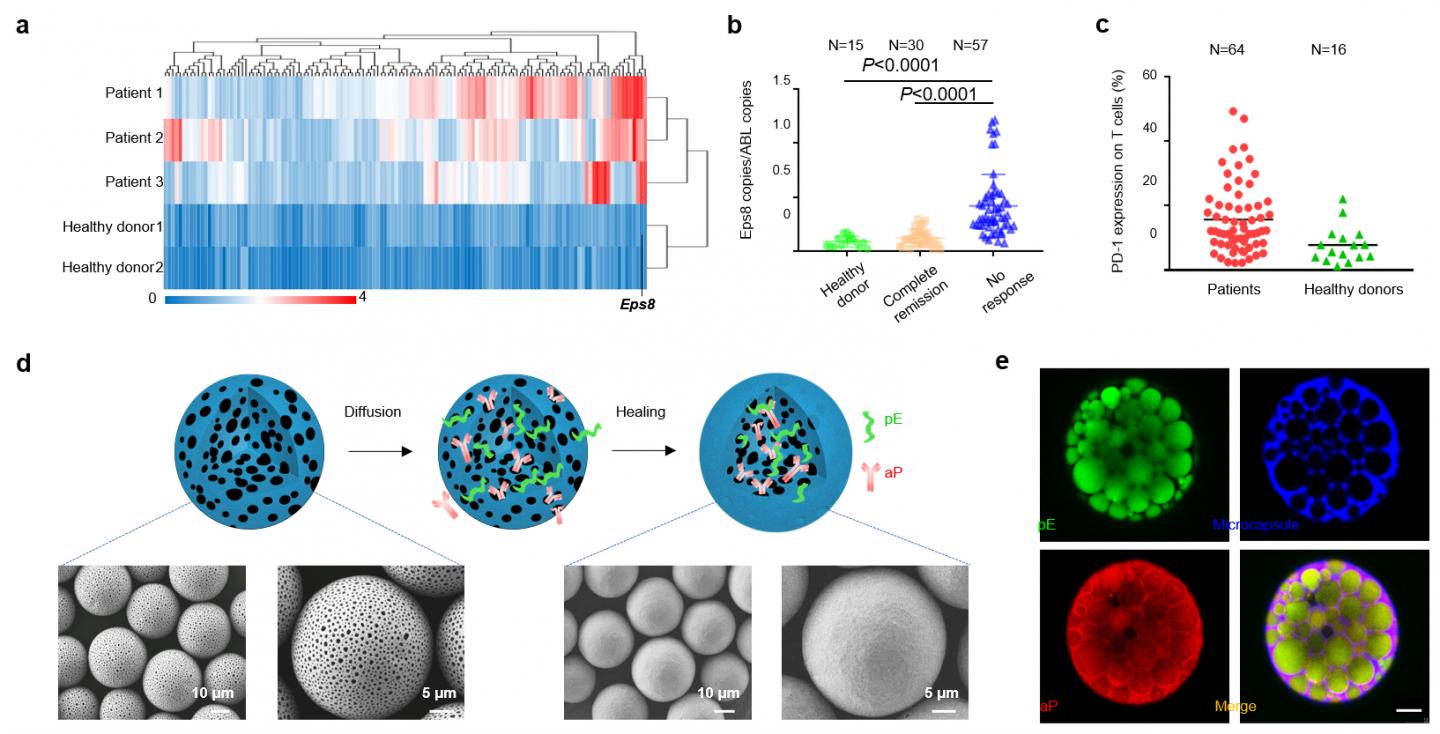
Researchers from the Institute of Process Engineering (IPE) of Chinese Academy of Sciences and Zhujiang Hospital of Southern Medical University have developed a new type of precise therapeutic vaccine against leukemia. It utilizes self-healing polylactic acid microcapsules for co-encapsulating a new epitope peptide and PD-1 antibody.
The study was published in Nature Biomedical Engineering on October 12.
Although the possibility of treating leukemia through vaccination has been established, therapeutic performance still falls short of expectations in clinic.
“Our clinical findings revealed the high expression of EPS8 and PD-1/PD-L1 in leukemia patients, which could be respectively used as a new type of leukemia antigen and a checkpoint target for a leukemia vaccine,” said Prof. LI Yuhua from Zhujiang Hospital.
In the novel vaccine, epitope peptides and PD-1 antibodies can be simply, mildly and efficiently loaded into polylactic acid microcapsules, facilitated by the unique self-healing feature of the microcapsule.
After a single vaccination, the deposition and degradation of microcapsules at the local injection site lead to recruitment of activated antigen-presenting cells and sustained release of both cargos.
“With the synergism of these two aspects, we observed a significant improvement in specific Cytotoxic T Lymphocyte (CTL) activation,” said Prof. WEI Wei from IPE.
The researchers also verified the availability of the novel vaccine using various epitope peptides in different models, such as murine leukemia, humanized cell line-derived leukemia xenograft (CDX) and patient-derived leukemia xenograft (PDX) models.
The microcapsule-based formulation demonstrated its superior performance over that of the ISA adjuvant (commercialized adjuvant) in all leukemia therapeutic models, showing the promise of the microcapsule-based vaccine for use against various leukemia antigens in clinic.
“With the advantages of FDA-approved polylactic acid material, convenience in preparing the vaccine formulation, diversity of vaccine components, and excellent therapeutic effect, the microcapsule-based vaccine exhibits great potential for clinical translation,” said Prof. MA Guanghui from IPE.
A peer reviewer from Nature Biomedical Engineering described the study as “comprehensive for a new platform”. The reviewer also emphasized that the work is “exciting and convincing”.
 Search
Search




 京公网安备110402500047号
京公网安备110402500047号